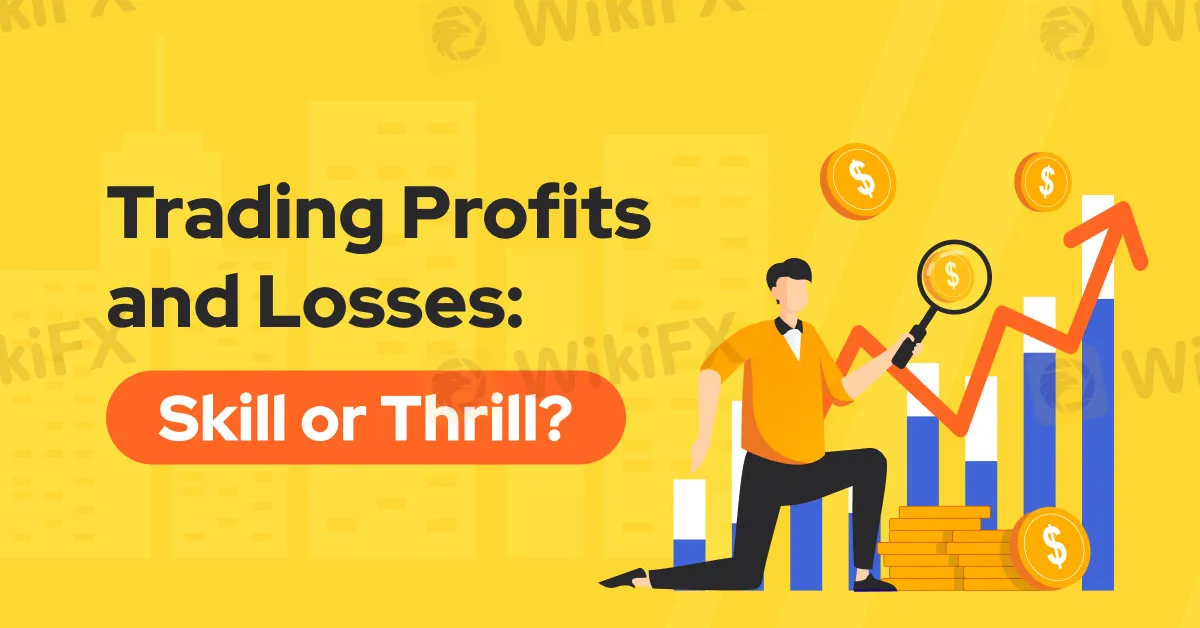Trading Profits and Losses: Skill or Thrill?
abstrak:Many traders find themselves caught in a cycle of euphoria and despair, riding the adrenaline rush of significant wins followed by crushing defeats. But is this rollercoaster of emotions and financial swings indicative of skilled trading, or is it merely gambling in disguise?

In the fast-paced world of online trading, the allure of high profits and the agony of big losses can often overshadow the fundamentals of sound trading practices. Many traders find themselves caught in a cycle of euphoria and despair, riding the adrenaline rush of significant wins followed by crushing defeats. But is this rollercoaster of emotions and financial swings indicative of skilled trading, or is it merely gambling in disguise?
Trading, at its core, is about making informed decisions based on analysis, strategy, and risk management. It's about consistency and discipline rather than chasing the next big score. Yet, for some traders, the temptation to aim for astronomical gains can lead them down a perilous path where each trade becomes a high-stakes gamble.
Consider this scenario: a trader celebrates a 50% return on their investment in a single day, only to lose it all and more the next week. Such volatility not only jeopardizes financial stability but also raises questions about the trader's approach to risk. Are they employing a calculated strategy, or are they succumbing to the thrill of uncertainty?

The distinction between a skilled trader and a gambler lies in their approach to risk and reward. Skilled traders prioritize risk management, using techniques like stop-loss orders and position sizing to protect their capital. They understand that while profits are important, preserving capital during downturns is crucial for long-term success.
Conversely, gamblers are driven by the rush of uncertainty and often disregard risk management principles in favour of chasing big wins. This behaviour can lead to reckless trading decisions, fuelled by emotion rather than logic, and ultimately result in substantial losses.
Psychologically, the allure of high-risk, high-reward trading can be compelling. The thrill of a big win triggers dopamine release, creating a psychological reward system akin to gambling. However, this euphoria is often short-lived, giving way to anxiety and regret when losses mount.
For traders genuinely committed to long-term success, adopting a strategic approach is paramount. This includes conducting thorough research, developing a robust trading plan, and adhering to disciplined risk management practices. It means accepting that not every trade will be a winner and being prepared to cut losses when necessary.
Moreover, successful traders understand the importance of continuous learning and adaptation. Markets evolve, and so must trading strategies. They stay informed about market trends, economic indicators, and geopolitical events that could impact their investments. This proactive approach helps them make informed decisions based on data rather than emotion.
In conclusion, the dichotomy between trading skill and gambling lies not only in the outcomes but in the mindset and approach of the trader. High profits and big losses may grab headlines, but they do not necessarily equate to successful trading. True success in trading comes from a disciplined approach, sound risk management, and a commitment to long-term profitability. As traders, it's crucial to ask ourselves: are we trading to build wealth through informed decisions, or are we simply chasing adrenaline rushes in the financial markets?
By fostering a culture of thoughtful reflection and responsible trading practices, traders can cultivate sustainable success and navigate the complexities of the financial markets with confidence.

Broker ng WikiFX
Exchange Rate
